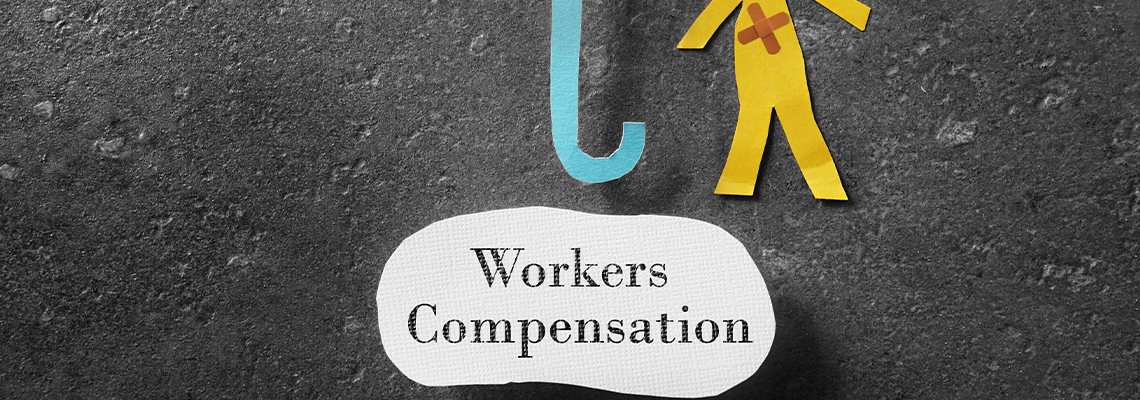Your Recovery Contact Us

Workers Compensation Death Benefits
Losing a loved one in a workplace accident is a devastating experience. Apart from the emotional turmoil, families often face financial challenges due to the sudden loss of income.
Workers compensation death benefits are financial payments made to the dependents of an employee who has died due to a work-related injury or illness. They aim to reduce the financial burden on the deceased worker's family by covering funeral expenses and providing ongoing income support.
These benefits typically include a lump sum payment and weekly support payments to the surviving dependents. The amount and duration of the payments can vary based on state-specific workers compensation laws and the worker's prior earnings.
Who Is Eligible for Death Benefits?
Eligibility for death benefits typically extends to the deceased worker's spouse, children, and other dependents. Each state has specific laws that define who qualifies as a dependent. In many cases, minor children and spouses who were financially reliant on the deceased worker are automatically considered eligible.
In some states, non-dependent parents or siblings may also be eligible if they can prove financial dependence on the deceased worker. Besides, there may be specific provisions for posthumous children or children born after the worker's death.
How Much Can Dependents Receive?
The amount of death benefits varies by state and is generally calculated based on the deceased worker's average weekly wage at the time of the injury or illness. Typically, dependents may receive a percentage of the worker's wage, subject to state-imposed limits.
Most states also provide a lump sum for funeral and burial expenses. Some states may offer additional benefits for dependents, such as educational assistance for the worker's children.
Filing a Workers Compensation Death Benefits Claim
This has several steps. First, the dependent must notify the employer of the worker's death. The employer then files a report with the state workers compensation board or commission. The dependent must submit a formal claim, including documentation such as the death certificate and proof of dependency.
The claim process may require dependents to provide documentation, such as medical records or autopsy reports, to prove that the death was indeed work-related. It is advisable to seek the assistance of an experienced workers compensation attorney to meet legal requirements and ensure timely submission of all forms.
Common Challenges in Claiming Death Benefits
While the process might seem straightforward, several challenges can arise. For instance, disputes over the cause of death or the extent of dependency can delay or complicate claims. Employers and insurance companies may contest the claim to avoid paying benefits, making it essential to seek legal assistance.
Insurance companies may demand extensive and sometimes invasive documentation to verify the claims, causing emotional distress to the grieving families. The claim may be denied if there is a lack of clear evidence linking the death to a workplace injury or illness.
Workers Comp Death Benefits in Kansas
If a Kansas worker dies due to a job-related injury or illness, their dependents are entitled to receive weekly payments equivalent to two-thirds of the deceased worker's average weekly wage, up to a maximum limit. Kansas law mandates that employers cover up to $10,000 in funeral and burial expenses.
Kansas also allows for the immediate payment of up to $1,000 to the surviving spouse or other eligible dependents to cover immediate financial needs following the worker's death. Moreover, the state provides educational benefits to the children of deceased workers to give them access to scholarships for post-secondary education.
In Kansas, a workers compensation death benefits claim must be filed within one year of the worker's death or within two years of the date of the compensable injury or illness, whichever is later. Failing to meet these deadlines can result in the forfeiture of benefits.
If a death benefits claim is denied, dependents have the right to appeal the decision. The appeals process may involve hearings before the state workers compensation board or commission.
Speak With Workers Comp Lawyers in Wichita, Kansas
Slape & Howard is committed to getting you compensation for the losses you’ve incurred following a car crash, workplace accident, or unjust denial of disability benefits. They want you to focus on your recovery without the added stress of handling these issues. Employers and insurance companies often rely on victims not questioning their settlements. At Slape & Howard, our attorneys develop legal strategies aimed at securing just compensation for your suffering. We are dedicated to ensuring those accountable pay what is rightfully owed. Call today for a consultation if you're in Wichita, Kansas, or anywhere in the state.

